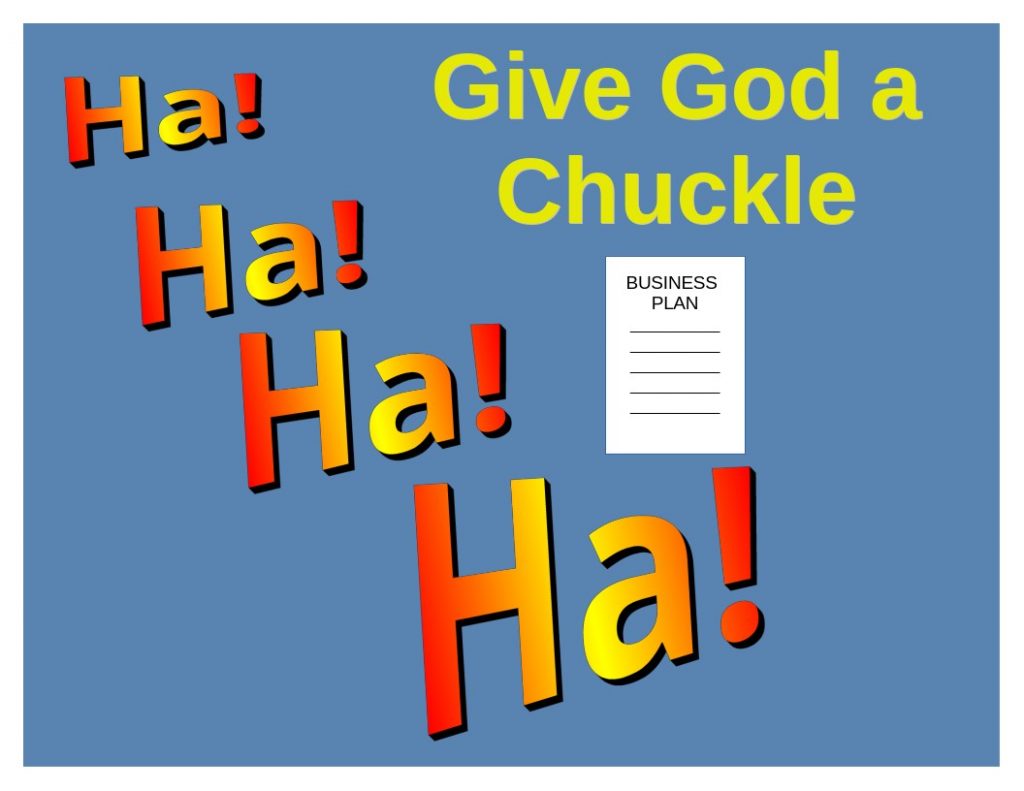- Give God a Chuckle

There is a well-known Yiddish proverb (der mentsh trakht un got lakht) that man plans and God laughs. It makes you smile because even though you try to prepare for the future, there is always something unexpected happening. As we confront unforeseen obstacles, we are constantly reminded of how difficult it is to predict the future. Often this is cited as a reason not to plan. However, even though we know we cannot predict the future, there are many benefits to planning, one of which is that it enables the question, why did it not happen the way we thought? This is a very different inquiry than asking what will happen in the future. Planning will not help us be any better at predicting the future, but it does allow a better reaction when unforeseen events occur.
In a business, a plan implies a group. A business owner who plans by looking in a mirror will not create a successful plan. The essence of a business plan is the communication of the plan, and almost all the time that means the plan has to be written on some format that will support communication to the group. But the communication must go both ways. The decision-making must involve the group such that it is group decision-making.
The initial plan process is to set goals. For a business, the owners need to understand and be able to articulate their values and they need to perceive the values of the others involved in the business. These values will shape and define the usual goals of profitability and growth.
Setting the business goals will define the entire business plan, which will seek to take actions to achieve the goals. Setting the goals is a function of group decision-making. It is the totality of the actions of the group of individuals that constitute the business that will determine whether goals are met. If the goals of the plan do not make sense to some members of the group of individuals that constitute the business, it is less likely that the plan will be successful. The communication flows both ways where the sense of the group is communicated to the owners before the goals are set. We are defining what is desired as a group for the business. Note that we have not yet tried to predict the future!
The management of a business will create actions to reach the plan goals. These actions will be of varying degrees of innovation. Some actions will be tried and true, while others involve change and a new approach. These results of these actions must be monitored. The minute we rely on a tried and true action to produce results, it does not. Certainly, we cannot depend on new actions to bring reliable results. The actions taken do not have to have the result desired immediately, but the result that does happen needs to be detected as soon as possible so that if the desired result is not occurring, corrections and revisions can be made. Monitoring and revising are the hedge against unknown future events. So we are not predicting the future, but if future events affect results, we need to change our actions to obtain the desired results, the goals of the plan.
What should be the format of the writing that documents the decisions made to set the goals, to formulate the actions taken to meet the goals, to execute those actions, to monitor the effects of those actions, and to revise the actions to take into consideration unforeseen events? The format should communicate from the owners to the managers to the producing employees and back again as decisions are made. A format that supports this communication makes the planning process dynamic. A dynamic planning process eliminates the time delays involved with the traditional planning process. There are software programs that do this, but a simple spreadsheet can also serve as the basis for a dynamic planning process.
